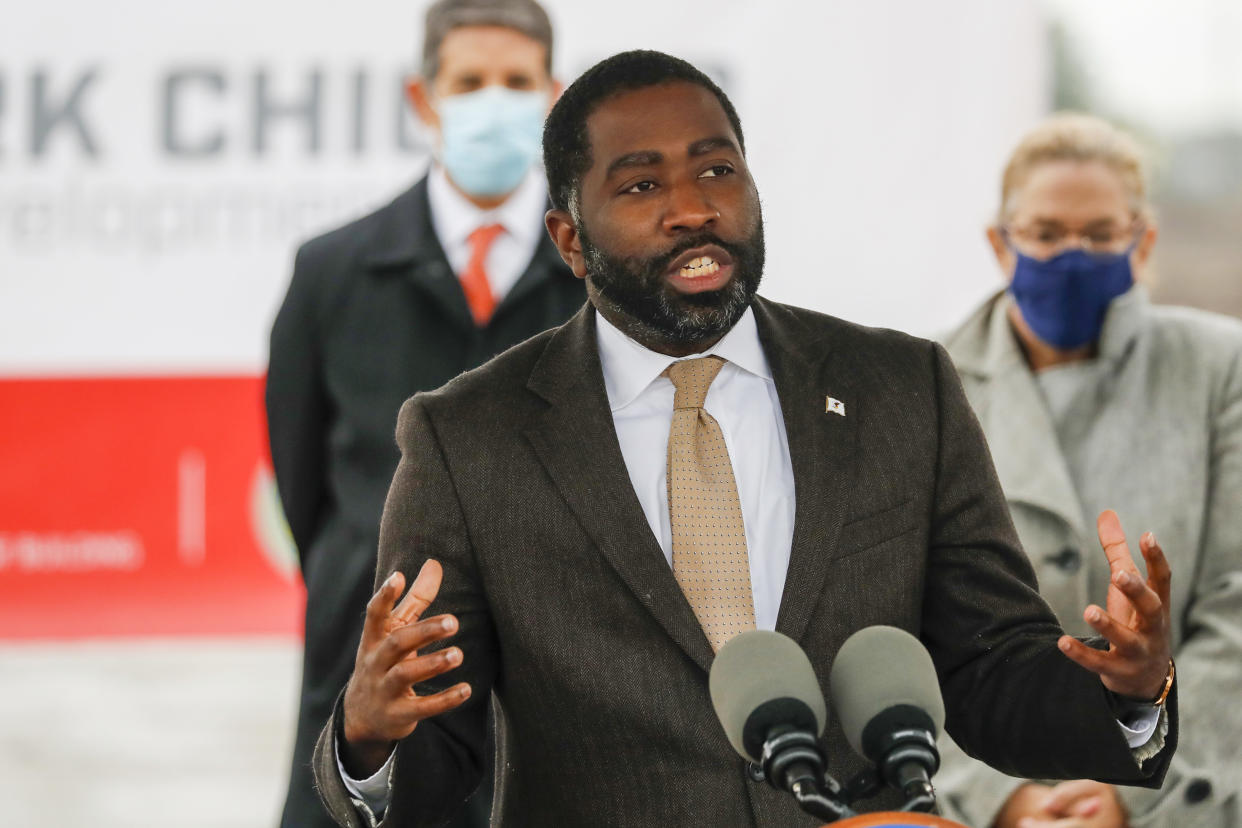Illinois could be the next state to curb ‘captive audience meetings’ on labor issues at work

Illinois legislators are advancing a measure that would prohibit employers from holding mandatory meetings with anti-union messages for employees.
Supporters of the bill said such “captive audience” meetings have hurt union campaigns in the Chicago area. The bill, which would cover meetings on political and religious issues, would not ban those meetings outright, but would prohibit retaliation against employees who choose not to attend.
“Without being retaliated against or punished, they should be able to just walk away from that meeting and go do their job,” Illinois AFL-CIO President Tim Drea said.
The bill passed in the Democratic-controlled state Senate on a party-line vote earlier this month. It had been amended to allow exceptions for explicitly religious or political employers, such as Catholic schools, Drea said.
Illinois business groups including the Illinois Chamber of Commerce, Chicagoland Chamber of Commerce and the Illinois Retail Merchants Association have come out against the legislation. In two other states, business coalitions have filed lawsuits against similar laws. Those lawsuits have yet to be resolved.
Seven states have enacted similar legislation, according to an analysis by the left-leaning Economic Policy Institute. The trend took off in state legislatures particularly in the past two years, with about 15 states since 2022 introducing similar bills, according to EPI.
Illinois Chamber President and CEO Lou Sandoval said the measure represents an overreach of government into business and is “setting the table” for union organizing efforts.
“It’s a slippery slope” toward restricting employer speech, Sandoval said.
But backers of captive audience laws, among them President Joe Biden’s top labor cop Jennifer Abruzzo, general counsel at the National Labor Relations Board, say forcing workers to attend meetings on labor issues can give an unfair advantage to anti-union employers in a union election.
Shep Searl, an Edgewater Starbucks employee, said one-on-one meetings with management during the North Ridge Avenue store’s 2022 organizing campaign sometimes became highly personal. A disabled Starbucks employee who identifies as nonbinary, they said they were subject to a one-on-one meeting suggesting Starbucks wouldn’t be able to protect their health care if the shop unionized.
During the first mandatory all-staff meeting after their store began its union campaign, multiple employees cried, exhausted at feeling unheard and talked down to by management, said Searl, who helped organize workers through Starbucks Workers United.
While the store’s employees ultimately voted to unionize anyway, the meetings “were damaging to the people involved in them,” Searl said.
Starbucks on Friday did not respond to specific questions about Searl’s experience but said it is “fully committed to the rights of our partners to organize, freely associate, and collectively bargain.”
“While Starbucks believes that our direct relationship as partners is core to the culture and experiences created in our stores, we continue to respect the outcome of union elections and we are approaching bargaining in good faith — with the aim of reaching ratified contracts for represented stores in 2024,” a Starbucks spokesperson said.
Corey Wade, a member of the International Association of Machinists Local 701, said in a previous job working at a DeKalb-area car dealership he and his co-workers were subject to anti-union meetings, which he blamed for the failure of that workplace’s union drive. Workers “absolutely” would have walked away from anti-union meetings if they knew they had legal protections, Wade said.
“At the end of the day, what we do is we go to work to provide for our families, not to be indoctrinated,” he said. The dealership declined to comment about the situation.
Business groups, for their part, have said that the Illinois bill targets employers’ ability to present information on certain topics to their workers, censoring them.
“It’s going to have a chilling influence on employers sharing their perspective,” because violations could result in monetary penalties, said Noah Finley, Illinois state director at the National Federation of Independent Business.
The restriction on mandatory political meetings also “cuts both ways,” the Chamber’s Sandoval said. If this legislation passes, an employee could theoretically walk out of a meeting promoting diversity, equity and inclusion in the workplace if they saw diversity as a political issue, he argued.
Training sessions related to harassment and discrimination, however, are exempted in the bill’s text.
Interfering with employees’ right to organize is already illegal under the National Labor Relations Act, Sandoval added.
Democrats have a supermajority in both General Assembly chambers, bolstering the bill’s chances for passage. The bill’s chief sponsor in the House, Democratic Rep. Marcus Evans of Chicago, said he’s hopeful it will be called for a vote in the coming week.
“This bill is really about anti-union tactics,” he said.
The Chamber is in conversation with the bill’s sponsors, Sandoval said, but he didn’t know “if there’s going to be an opportunity to provide” any kind of pro-business amendment.
The National Federation of Independent Business is part of two separate coalitions suing against captive audience laws in Minnesota and Connecticut, respectively; the Connecticut group also includes the U.S. Chamber of Commerce.
Finley declined to comment on whether NFIB would pursue legal action against the Illinois legislation. Court decisions in Minnesota and Connecticut would have “a ripple effect” in other states, he said.
Business groups are likely pursuing legal action as they notice the national political headwinds on these policies, Sen. Robert Peters, the Chicago Democrat who sponsored the Illinois bill in the Senate, said.
“This is an initiative being pushed on a national level with Illinois next on the list to join other states that have fought to protect workers’ rights,” Peters said.

